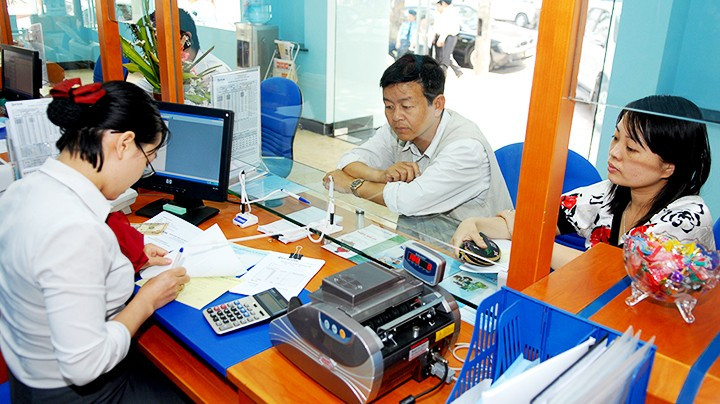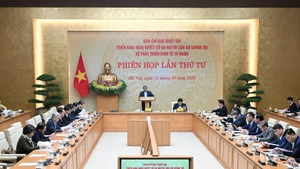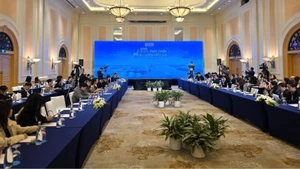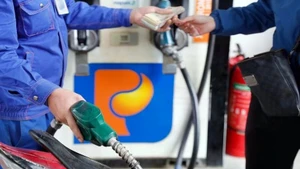According to Deputy Governor of the State Bank of Vietnam (SBV) Dao Minh Tu, the central bank has submitted proposals to the government for the transfer of two struggling banks, GPBank and DongA Bank.
Multiple deals anticipated
Previously, VPBank and HDBank had repeatedly announced their intention to take over struggling banks. VPBank is predicted to acquire GPBank, while HDBank will take over DongA Bank. In October 2024, CBBank and OceanBank were successfully transferred to Vietcombank and MB respectively.
Associate Professor Dinh Trong Thinh, a senior lecturer at the Academy of Finance said that executing transfers of struggling banks is essential to protect depositors’ interests and create opportunities for stronger banks to take over and restructure these institutions. This contributes to making Vietnam’s banking system more stable and sustainable.
According to the 2024 Law on Credit Institutions, effective from July 2024, regulations regarding mandatory transfers of struggling banks have been clarified, creating a solid legal framework for implementation. These regulations not only protect the interests of depositors and stakeholders but also help receiving banks implement restructuring processes safely and effectively.
Recently, Techcombank’s leadership revealed plans to consider selling a 15% stake to a suitable foreign strategic investor in the near future. Since HSBC’s divestment in 2017, Techcombank has gone seven years without a new foreign strategic investor.
However, foreign ownership at Techcombank has currently reached 22.5%, meaning the bank needs some existing foreign shareholders to sell before it can offer additional shares, to comply with the 30% foreign ownership cap.
Meanwhile, the most anticipated M&A deals this year are the billion-dollar capital sales of Vietcombank and BIDV. Although both banks announced these plans at their 2024 annual general meetings, they were postponed due to unfavourable market conditions.
According to MB Securities (MBS), both Vietcombank and BIDV have decided to postpone their share issuance plans to 2025. Previously, Vietcombank’s leadership indicated they were working closely with international consultants and expected to complete the transaction in the first half of 2025.
Currently, the number of domestic banks with foreign strategic shareholders remains quite limited, including VietinBank (MUFG Bank), BIDV (KEB Hana Bank), Vietcombank (Mizuho), VPBank (Sumitomo Mitsui Banking Corporation), and OCB (Azora Bank). Banks without foreign strategic shareholders, such as Nam A Bank and LPBank, are actively negotiating with potential partners to find suitable investors, with notable deals expected to occur in 2025.
Addressing charter capital pressure
Banks consistently face pressure to increase their charter capital, as they must continuously meet credit growth requirements. In principle, if credit growth is in the single digits, charter capital must increase by at least a corresponding proportion.
Regarding this matter, on the final day of 2024, LPBank shareholders received notice about a stock dividend distribution. This was the official outcome following the extraordinary general meeting held in mid-November 2024, which approved the charter capital increase plan through issuing stock dividends at a rate of 16.8% (according to the adjusted plan). Upon completion, LPBank’s charter capital is expected to reach a maximum of 29.873 trillion VND.
Recently, the SBV approved SHB’s request to increase its charter capital to 40.658 trillion dong by issuing nearly 403 million shares as dividends, equivalent to 4.029 trillion dong. Previously, the central bank also agreed to BAC A BANK’s charter capital increase of 1.579 trillion VND to 10.538 trillion VND. NCB was also permitted to conduct a private share placement to increase its charter capital by up to 6.2 trillion VND, potentially raising it from 5.602 trillion VND to 11.802 trillion VND if the issuance plan succeeds.
In the banking sector, maintaining the capital adequacy ratio (CAR) at the minimum level required by law is mandatory. This ratio is calculated based on charter capital relative to total risk-weighted assets, meaning that when banks increase deposits and lending, charter capital must rise correspondingly to maintain a safe CAR.
However, according to a senior SBV official, whilst the financial health of Vietnam’s banking system has improved, the CAR of domestic banks remains significantly lower than the regional average. Moreover, in the context of decreasing interest rates and weakening corporate financial health, capital raising has become more challenging for banks.
Therefore, increasing charter capital is considered a crucial solution to improve the sustainability and competitiveness of the banking system. However, this activity faces numerous challenges as investment flows from major shareholders into banks are increasingly strictly controlled to prevent cross-ownership and banking manipulation.
Consequently, experts suggest that raising foreign capital is an urgent step to implement long-term capital increase strategies. Foreign partners not only help banks supplement their financial resources but also create opportunities to leverage management experience and enhance risk management capabilities according to international standards.
















